Jane Tomlinson - An indefatigable Yorkshire spirit that inspired so many people
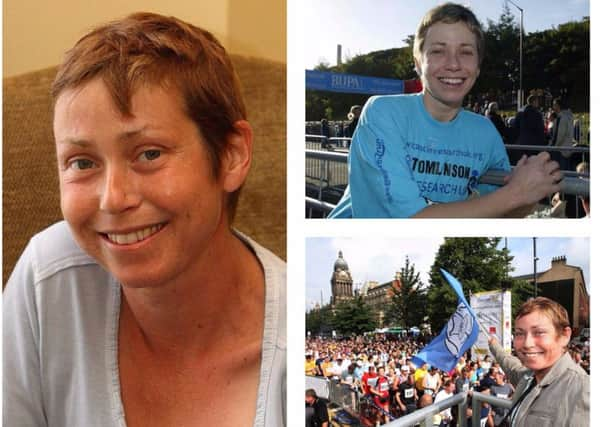

For many people the end of summer and the slow, changing of the seasons is their favourite time of the year. But for Mike Tomlinson it’s one tinged with sadness and grief.
On Sunday it will be exactly 10 years since his wife Jane Tomlinson lost her courageous battle with cancer at the age of just 43. However, her story continues to inspire people today – her name a byword for courage.
Advertisement
Hide AdAdvertisement
Hide AdIn 2000, Jane received the devastating news that she had incurable cancer and was told she had just six months to live.
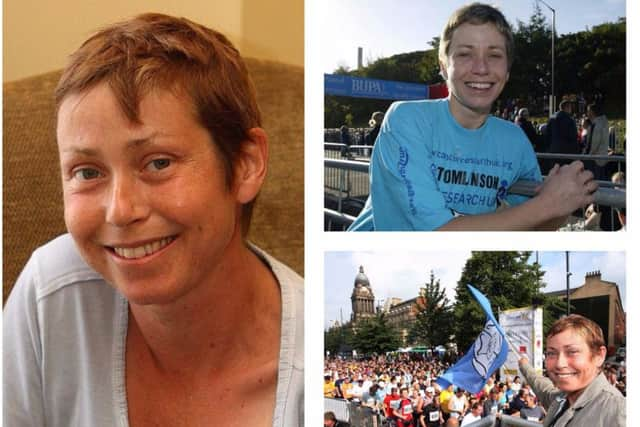

She went on to live for another seven years during which time became the first person with terminal cancer to finish the London Marathon, completed triathlons and ironman contests, and, in her last epic adventure, cycled 4,200 gruelling miles across the United States.
Jane raised £1.8m for charity before she died in 2007 and more than a thousand people, touched by her dedication, courage and energy, gathered at St Anne’s Cathedral in Leeds for her funeral.
For her widower, Mike, the anniversary understandably brings back painful memories. “I don’t like this time of year – the smells and that little bit of dampness you get early in the morning at the start of September.”
Advertisement
Hide AdAdvertisement
Hide AdHe explains how Jane’s condition deteriorated during the last year of her life and how, after returning from a short break in Ireland in mid-August, she went to St Gemma’s Hospice in Leeds.
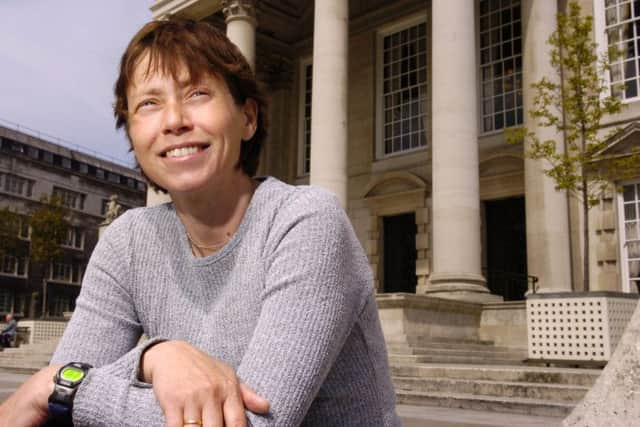

“We initially thought it was just going to be for a few days. But that was it, she never came home. I went to St Gemma’s every day with hope and every day I would go home feeling sicker than I did when I went in.”
He and their three children, Suzanne, Rebecca and Steven – who was just 10 when Jane died, were left to come to terms with their devastating loss.
For Mike this meant balancing his job working in a bank with being a single parent and at the same time trying to build on the fundraising legacy Jane had left behind. In the 18 months following her death his feet barely touched the ground.
Advertisement
Hide AdAdvertisement
Hide Ad“That first year’s a complete blur,” he says. “There was a desire for us, me and Becca especially, to do something so we ended up training for a marathon and cycling from Land’s End to John O’Groats and looking back I don’t know how I fitted it all in.”
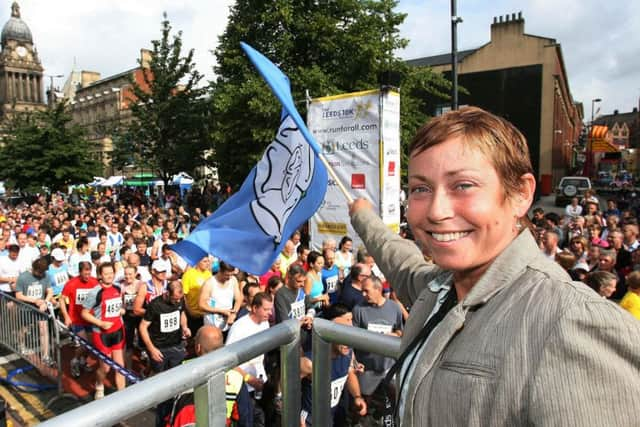

On top of all this he had to finish the book Jane was working on when she died and getting the Leeds 10K, first held when Jane was still alive, up and running. Jane died less than three months after the inaugural race and it was Mike who helped organise a second event the following year. “We sold 11,000 places and we could probably have sold 40,000,” he says.
Keeping himself busy was a way of deflecting his grief. “It’s inescapable but you have to be professional at work. You box it off in your head otherwise it would have been very difficult.”
Despite his best efforts the workload was taking its toll and in April 2009 he quit his job at the bank, which he says had been very supportive, to concentrate on the fundraising efforts in Jane’s name.
Advertisement
Hide AdAdvertisement
Hide AdIf that was a weight lifted from his shoulders then a trip to Wisconsin with his son to watch Pearl Jam in September 2011, was no less cathartic.
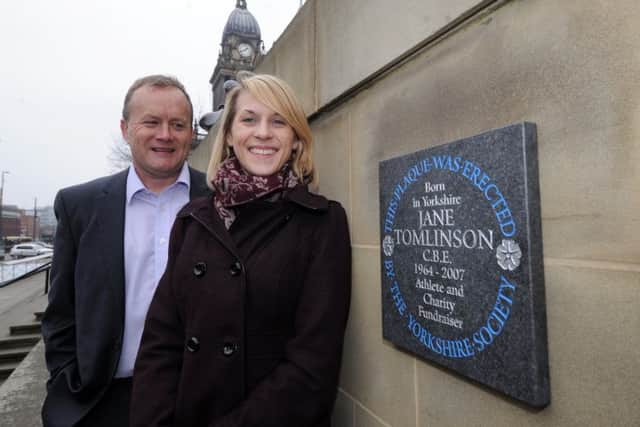

“Jane was a big Pearl Jam fan and they were playing an anniversary concert which happened to be four years to the day since Jane’s death. We were sat there and they played a song called Say Hello to Heaven and I was bawling my eyes out thinking ‘if Jane was alive this is where we’d be right now’. It was one of those moments you look back on where your life changes. I knew I had to change my outlook, to be more positive and to stop dwelling on the past,” he says. “The grieving process didn’t stop, it never goes away. Jane didn’t live her life with regrets she just got on with it and it was about me trying to enjoy life again.”
This meant continuing the legacy Jane started. “What Jane did was unbelievable. For someone to get told they’ve got six months to live and then to spend nine months having chemo, how do you get to the stage of running a marathon 18 months later having never run before? She did things that nobody else in the world in her condition had ever done,” he says.
“All the money pretty much came from Jane doing these challenges and when she died that stopped. We only had a 20 per cent stake in the Leeds 10k at the time and that was it.”
Advertisement
Hide AdAdvertisement
Hide AdThe challenge of how to take on the mantle was a daunting one, but he once again turned to his late wife for inspiration. “Jane always said when you start a journey people come and help you and that’s how the first Leeds 10k happened.”
Run For All Run, an integral part of Jane’s legacy, started out with just four people who had to share desks and had one laptop between them in the early days. Since then it has grown to become one of the UK’s biggest not-for-profit events companies. “Jane came up with the name Run For All and it kind of epitomises her attitude.”
Time clearly hasn’t dimmed his admiration for her. “I couldn’t do what Jane did. But then I haven’t met anyone like her. Jane could be desperately ill when she was going to bed and if I asked if she was ok she’d say, ‘yep, tomorrow’s going to be better’. It wasn’t it might be better, or hopefully I’ll be better. It was always ‘tomorrow’s going to be better.’


“With the cancer in her bones she’d often wake up feeling very stiff but she used to focus on the pain and visualise it all in her big toe. Then she’d get out of bed and start the day like that no matter how sore her body was.”
Advertisement
Hide AdAdvertisement
Hide AdA decade on from Jane’s death people still talk about her in glowing terms such was the effect she had.
“One of the things Jane really wanted to do, as much as the fundraising was important, was to show people that you aren’t defined by the illness, that it doesn’t matter who you are, or how old you are, that you can achieve things when other people have written you off.
“Don’t be defined by your condition or circumstances, you can push those boundaries.
“People saw what she did and thought ‘if she can do it, then I can do it.’
Advertisement
Hide AdAdvertisement
Hide Ad“We still get people running now or coming to the events saying ‘Jane changed my life’ and there aren’t many people who get to do that.”
Now that his children have left home Mike dedicates his time to raising as much money for charity as possible. “The hardest part of the last 10 years is that when we started there was two of us and now there isn’t.
“So if I come up with a wacky idea and we try it and it fails Jane would’ve said ‘I could have told you that,’” he says.
He’s conscious of his own part in all this. “Whenever we’re making decisions I’m constantly thinking ‘is this what Jane would have wanted?’ Because it’s the Jane Tomlinson Appeal it’s not Mike Tomlinson’s Appeal.
Advertisement
Hide AdAdvertisement
Hide Ad“ This is about Jane, it wouldn’t be happening without her, and my job is to be custodian of that legacy and make it as successful as possible.”
All the fundraising and great feats of endurance were borne out of a tragic situation and Jane’s refusal to give in to it. it’s this and the indefatigable human spirit which she embodied, that has inspired so many people and still does.
“We’re just a vehicle to allow people to achieve things they never thought they would achieve,” says Mike.
“Some of the stories and some of the kids that take part and the journeys they go on are incredible... I think Jane would be overjoyed with that.”
Advertisement
Hide AdAdvertisement
Hide AdFor more information on the Jane Tomlinson Appeal go to http://www.janetomlinsonappeal.com/
For details on the events staged by Jane Tomlinson’s Run For All go to http://www.runforall.com/
Jane Tomlinson: A Yorkshire heroine
Jane Tomlinson was born in Wakefield in 1964. She married Mike in the mid-80s and the couple set up home in Leeds.
Her ordeal began in 1990, when she was first diagnosed with cancer. In 2000 she was diagnosed with incurable cancer and given just six months to live.
Advertisement
Hide AdAdvertisement
Hide AdJane then began a remarkable journey that made her an inspirational figure around the world by completing a string of mammoth endurance feats.
In 2003 she became the first person to run the London Marathon whilst undergoing chemotherapy. The following year she became the first cancer patient to complete full ironman – involving a 2.4 mile swim, 112 mile bike and 26.2 mile run.
By the time of her death in 2007, the mother of three had raised £1.8m for charities. Her fundraising legacy continues to this day with the news that £10m has now been raised in her name.
Read more: